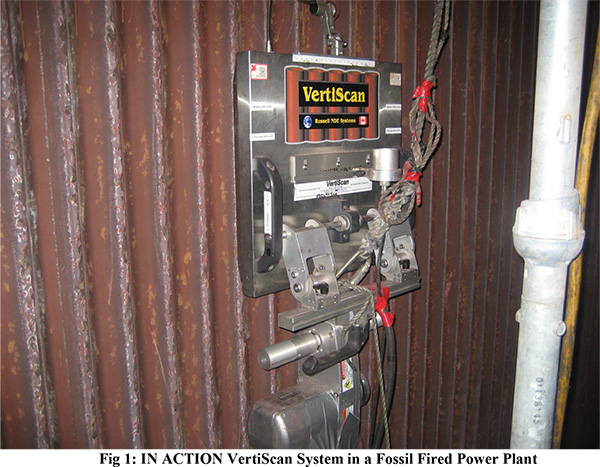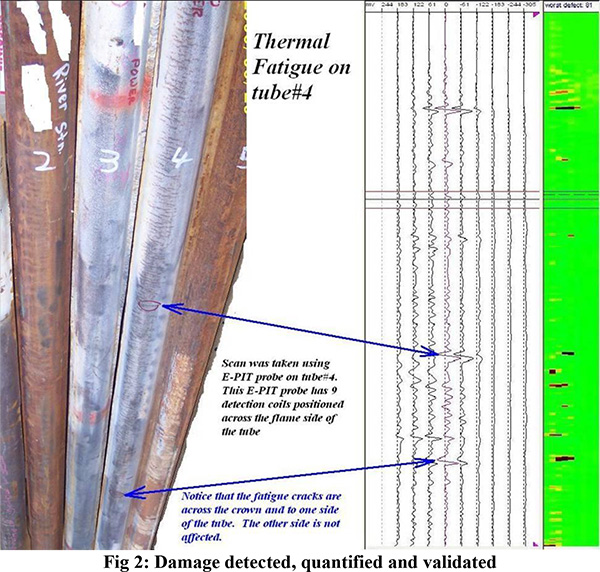News
Mar 2019
Inspection in Power Plants using ROBOTICS
Forced outages of steam boilers due to tube leakages remain the leading cause of lost production in power plants. Due to hundreds, if not thousands of linear feet of pipe, there is a high potential for failure without notice. One of the biggest challenges for maintenance and operations personnel is the prevention of tube failures in boilers and heat exchangers without causing significant loss to the company. When failure cannot be prevented due to operating conditions, the question must be raised, “how we prevent this failure?”
Boiler operation always involves harsh working conditions. On the gas side of tubes, high operating temperatures, and corrosive by-products from burning fossil fuels or solid waste can seriously degrade the life-expectancy of boiler tubes. On the steam side, there is a high potential for oxidization of boiler tubes due to high temperature steam, and the corrosive action of chemicals in the water supply. These conditions may cause metal to overheat, corrosive wall thinning, and localized pitting – any or all of which can lead to premature equipment failure. Despite these adverse operating conditions, boilers have a life expectancy upwards of 30 years, and most premature failures are due to conditions that make operational variables deviate from expected parameters.
Industrial best practice is to inspect all tubes periodically, checking to ensure that mechanical properties of the materials are intact, and that material thickness is within normal expectations. A proper and rigorous inspection regimen will go a long way to reduce the probability of premature boiler failures.
For over 40 years, Russell Group, together in collaboration with Power producers, Power research institutes, Pioneer universities across the globe have been developing new robotic equipment based on the RFT technology for precise, high-speed inspection of boiler tubes. Among Russell Groups primary satisfied clients are almost all the major power producers around the world.
One area in which Russell has, at the client’s request, placed significant priority is that of boiler tube failure, resulting in the launch of the VertiScan System. A highly versatile piece of equipment, VertiScan allows for rapid inspection of boiler tube thickness and condition assessment. A complete, preventative inspection of water wall tubes averages three to four shifts and can detect virtually all potential failure mechanisms before they turn into catastrophic accidents and significant production time loss. The VertiScan has a high probability of detection for such concerns as: fatigue corrosion, acid corrosion, caustic corrosion, hydrogen damage, thermal fatigue, and erosion due to blowing steam, long-term overheating, I.D. and O.D. pits, erosion due to carbon particles, boiler slag damage, corrosion due to dew point, and corrosion due to combustion.
For super-heater and re-heater inspection, Russell developed the E-Pit hand-held tool that allows access to remote and difficult-to-reach areas. The E-Pit accurately measures wall thicknesses of super-heater tubes, and detects most failure mechanisms, such as creep, fire-side corrosion, carburization, welding failures, blisters, stress corrosion cracking, surface mechanical damage, wear, I.D. and O.D. graphitization, and chemical cleaning damage.



